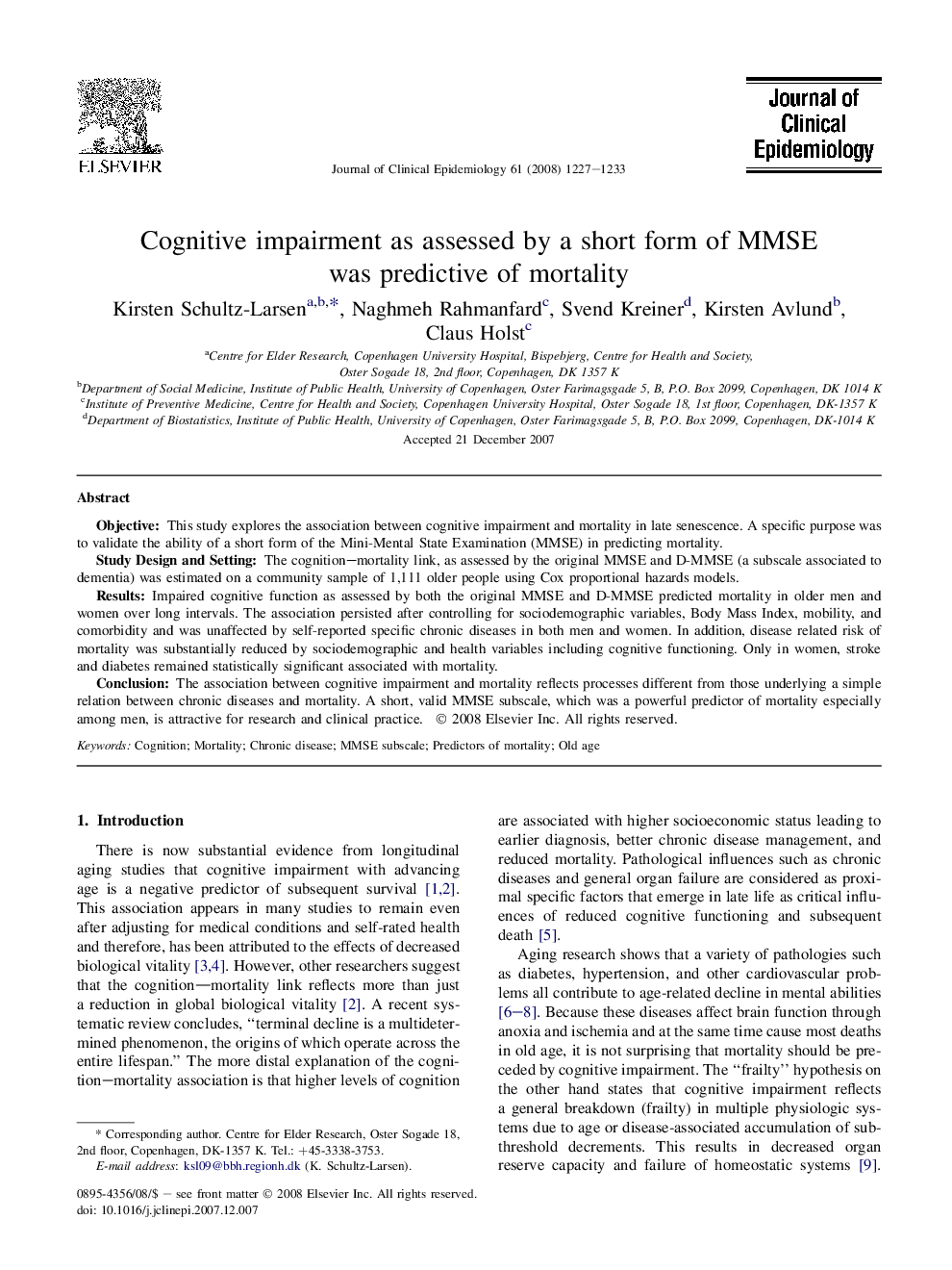| Article ID | Journal | Published Year | Pages | File Type |
|---|---|---|---|---|
| 1083275 | Journal of Clinical Epidemiology | 2008 | 7 Pages |
ObjectiveThis study explores the association between cognitive impairment and mortality in late senescence. A specific purpose was to validate the ability of a short form of the Mini-Mental State Examination (MMSE) in predicting mortality.Study Design and SettingThe cognition–mortality link, as assessed by the original MMSE and D-MMSE (a subscale associated to dementia) was estimated on a community sample of 1,111 older people using Cox proportional hazards models.ResultsImpaired cognitive function as assessed by both the original MMSE and D-MMSE predicted mortality in older men and women over long intervals. The association persisted after controlling for sociodemographic variables, Body Mass Index, mobility, and comorbidity and was unaffected by self-reported specific chronic diseases in both men and women. In addition, disease related risk of mortality was substantially reduced by sociodemographic and health variables including cognitive functioning. Only in women, stroke and diabetes remained statistically significant associated with mortality.ConclusionThe association between cognitive impairment and mortality reflects processes different from those underlying a simple relation between chronic diseases and mortality. A short, valid MMSE subscale, which was a powerful predictor of mortality especially among men, is attractive for research and clinical practice.
